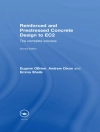These proceedings gather a selection of peer-reviewed papers presented at the 6th Thailand Rail Academic Symposium (TRAS 2019), held at Mahidol University, Bangkok, Thailand on 21–22 November 2019. The focus is on presenting recent research on issues related to rail and metro, with a specific focus on metro performance and system design undertaken in Thailand, South East Asia and beyond. Topics presented are divided into three themes and cover topics towards sustainable transportation related to: Metro operations and system performance; Rail engineering and vehicles; Rail education and training.
विषयसूची
Chapter 1:Station Naming Strategies for A Metro System Expansion: A Case Study of Bangkok Metro Network.- Chapter 2: An Assessment of Public and Private Transport Competitiveness in Jakarta with the Focus on MRT.- Chapter 3:Safety Culture in a Railway Maintenance Environment: A Case Study of Bangkok Metro Network.- Chapter 4: Passenger Behavioral Response to Off-Peak Fare Reduction in Airport Rail Link, Bangkok, Thailand.- Chapter 5:Metro Performance Indicators for Service Operations in Thailand.- Chapter 6:The Metro Network Extension in the West Midlands: A Socio-Economic Impact Assessment.- Chapter 7:Rail Careers in ASEAN: Employers Search for Talents, Skills and Knowledge.- Chapter 8:The Development of Railway Track Inspection System for Track Maintenance.- Chapter 9:Spatio-Temporal Retail Competition Factors Accessibility in Hakata station, Japan.- Chapter 10:Land Use and Transport Integration to Promote Pedestrian Accessibility in the Proximity of Mass Transit Stations.- Chapter 11:Measuring the Changes of Subway Accessibility Through the Service Area Territories: A Case Study of Fukuoka Subway Network.- Chapter 12:Train Approaching Information Platform and Service System.-
Chapter 13:Short-Turning Management During Railway Network Disruption.- Chapter 14:A Train Rescheduling System Using Timed Coloured Petri Nets.- Chapter 15:Train Movement Under the Virtual Coupling System.- Chapter 16:An Optimal Multi-Objective Train Speed Profile for Mass Transit Systems Using a Genetic Algorithm-Based Technique.- Chapter 17:Design of Optimal Train Speed Profile for PMSM Railway Traction System Using Dynamic Programming with MTPA Control Method .लेखक के बारे में
Dr. Waressara Weerawat is an assistant professor in the Industrial Engineering Department at Mahidol University in Thailand. She is currently serving as director of the Logistics Innovation Center and deputy director for Cluster of Logistics and Rail Engineering (CLARE) leading several industry, research and academic projects in the area of rail freight and logistics improvement, modeling and simulation of rail transit system, rail operations and timetabling, and the livable city. She has been a leader in establishing the Cluster of Rail and Logistics Engineering (CLARE) and the masters program in railway transportation system at Mahidol University since 2017. Besides working with Mahidol University, she has developed many research projects under the support of international funds, the Ministry of Science and the Ministry of Transportation, as well as rail operators in Thailand.
Dr. Phumin Kirawanich has been a Faculty Member with the Department of Electrical Engineering, Mahidol University, serving as an Associate Professor. From 2002 to 2007, he was with the Power Electronics Research Center and the High Power Electromagnetic Radiation Laboratory, University of Missouri, as a Postdoctoral Fellow. From 2007 to 2008, he was with the Department of Electrical and Computer Engineering, University of Missouri, as an Assistant Professor. Since 2008, he has been with the Faculty of Engineering, Mahidol University. Dr. Kirawanich has contributed a number of research papers and book articles. His research interests include railway EMC, pulsed-power technology and applications, terahertz-pulse generation, and electromagnetic and semiconductor device physics computation.
For practical professional experiences in railway systems, Dr. Kirawanich is an EMC specialist and consultant coordinating EMC matters at system level across all M&E subsystems and establishing EMC compliance of the whole railway as a complete system, and preparing the management plan to ensure the earthing, bonding, stray current and lightning protection activities carried out over all M&E disciplines.
Dr Anna Fraszczyk has been investigating travel behaviour research and community engagement over the last 13+ years. She has co-authored a number of papers and book chapters focused on various issues, from public perception of driverless trains in Sydney to barriers to digital learning in rail to women in transport issues globally, with statistical analysis as her primary method of interest. She has worked at universities in the UK and in transit simulation modeling Thailand and presented her research outcomes at various international transport conferences.
Dr Marin Marinov is a lecturer at Aston University who specialises in rail transport, simulation modelling and logistics. His expertise include rail operations studies, baggage handling systems, metro performance and expansion of urban rail networks, simulation modelling methodologies, urban freight by rail and logistics. Dr. Marin’s recent work on sustainable rail systems and decarbonisation looks at developing terrorist threat mitigation strategies for the railways, reviewing mechanisms for obstacle detection and analysing and comparing different methods used for calculating emissions of rolling stock based on their types and modes of operation (diesel, electric and bi-mode), a comparison between conventional, freight and high speed rail and alternative fuels for diesel and bi-mode locomotives compared based on their environmental impact.












